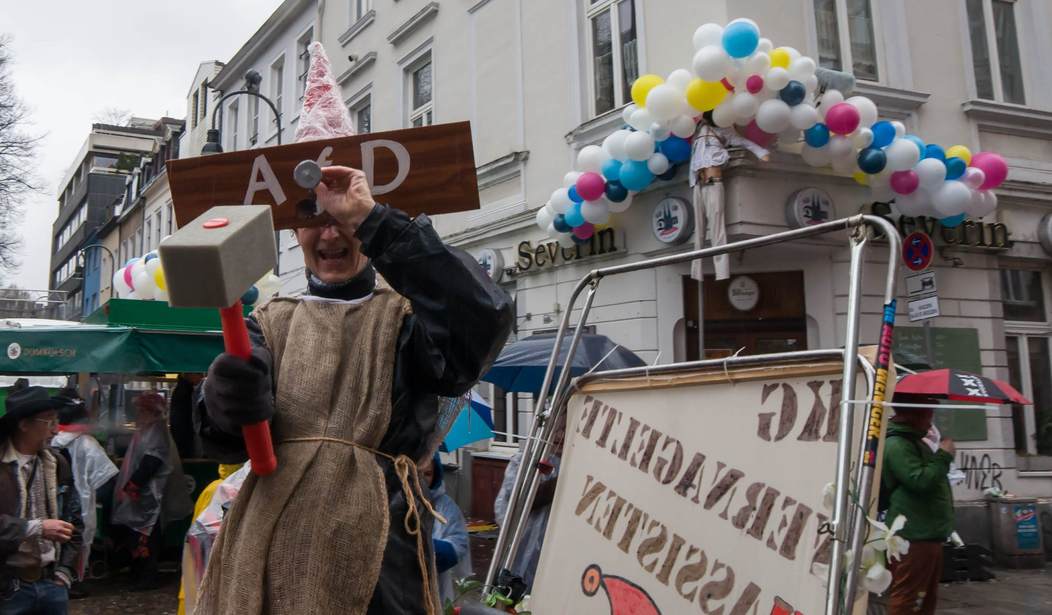At the Alternative für Deutschland’s (AfD: Alternative for Germany) convention this weekend, the eurosceptic German nationalists elected new leadership. While the party’s members did so, leftist agitators took to the streets to protest the far-right party.
It was an historic convention for AfD. Until this year, the party had no members in the Bundestag, Germany’s Parliament. That changed in 2017, however, when they won more than 90 seats. Although some MPs left the party (including former leader Frauke Petry), AfD still has 92 seats left.
“More mature, more adult, smarter” is how Meuthen described the AfD, which would be the largest opposition party in the Bundestag if Merkel’s CDU forms another grand coalition with the center-left Social Democrats. That would allow AfD members to speak first in Bundestag debates.
Indeed, there was much self-congratulation on Saturday at the AfD’s convention in the northern city of Hanover. The first order of the day was a recap of election successes in 14 of Germany’s 16 state parliaments (with a promise to take Hesse and Bavaria next year) and a round of applause for the AfD’s 92 newly minted Bundestag lawmakers.
At the convention, the party’s leaders took several swipes at Angela Merkel. AfD spokesman Jörg Meuthen said, for instance:
There are people in this country who say ‘We can do it,’ and those who actually get something done.
That was clearly aimed at the chancellor, who told Germans “we can do it” when people expressed concerns about the tsunami of immigrants from the Middle East and Africa who have come to Germany in recent years.
In the end, the party’s members elected Meuthen and current co-chair Alexander Gauland as their two leaders. This co-leadership system is one of AfD’s main strengths (because they allow different wings of the party to feel like they’re in control), but also one of its main weaknesses because it creates disorder and encourages infighting. For now, however, the party seems to have everything under control, which enables them to focus on regional elections and on becoming Germany’s most influential and outspoken opposition party.
That’s good news for AfD, but there’s also bad news. While the party’s convention took place, leftist agitators took to the streets to protest the party’s existence:
Many protesters were up long before dawn and already demonstrating by 6 a.m. as they attempted to prevent the convention from even starting. Braving freezing temperatures, barbed-wire fences and police in riot gear, thousands took to the streets, chanting “Piss off Nazis — no one will miss you” and carrying signs in support of religious pluralism.
The protests took on many shapes and sizes, in some cases turning violent as sporadic clashes broke out between demonstrators and security services. Police employed water cannons in the frigid early morning against a number of left-wing protesters, and one young man had his leg broken in the fracas.
“They are not a normal party,” one young protester said when asked whether he thought the AfD had the right to hold conventions as Germany’s other parties do. “They are undermining our democracy.”
As is always the case, there’s no actual evidence that AfD plans to “undermine” Germany’s democracy. The only thing that’s clear beyond a shadow of a doubt is that it’s a nationalist-populist party. Perhaps those radical leftists are afraid that AfD would undermine democracy, but their fears do not make it so.
In fact, considering the fact that these leftwing protestors are calling for a ban on AfD, you could very well argue that they are the ones who want to undermine democracy. And they’re not exactly secretive about it either.









Join the conversation as a VIP Member